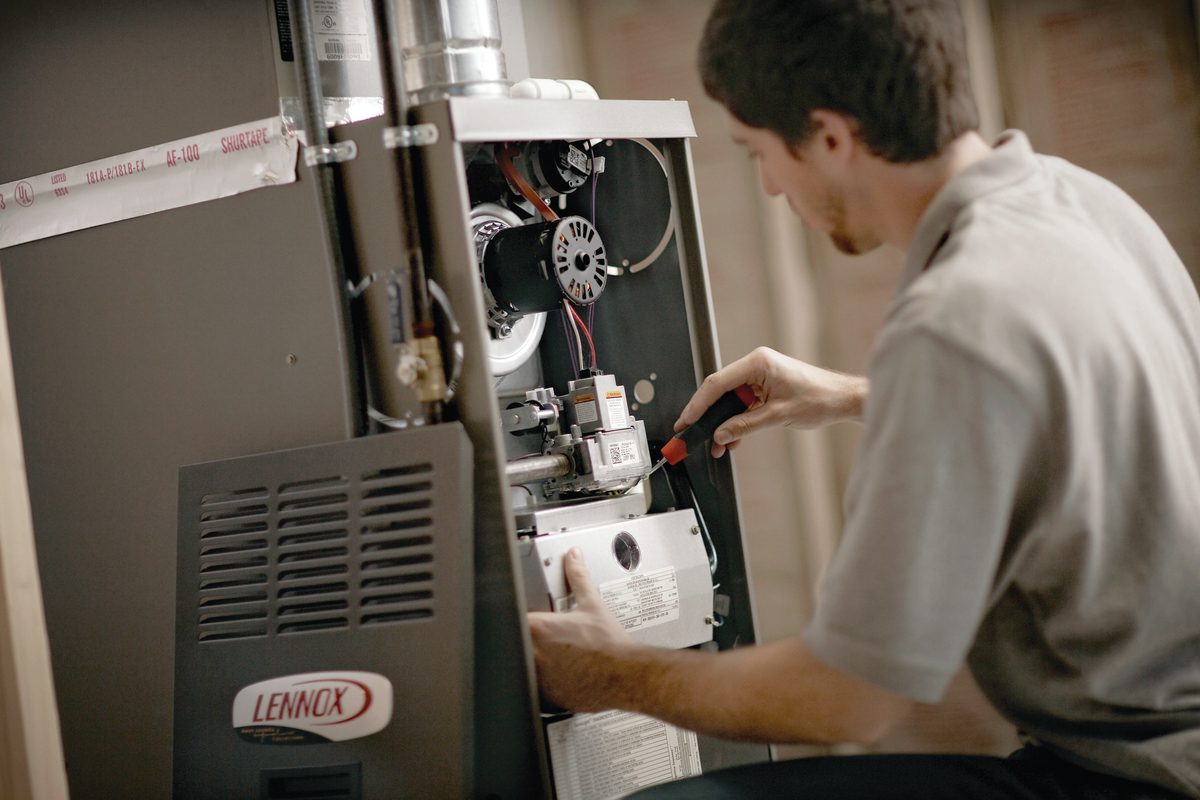Furnace maintenance is essential to the unit’s overall health, longevity, safety and performance. Developing and sticking to a regular furnace maintenance routine can help you recognize problems before the cold snap hits and get the most out of your unit. While exact maintenance requirements and red flags vary by model and type, here’s a list of the most common things you should be doing to keep your furnace running. Always make sure you disconnect your furnace from its power source before attempting any sort of maintenance.
Clean around the unit
Both dirt and dust often accumulate around your furnace. Use a vacuum with gentle suction and cloths to clean away the debris so it doesn’t end up inside your unit and your home’s vent system. Make sure you clean up the area around the unit as well, such as the surrounding floor.
Change your filters
Your furnace uses air filters to keep dirt and debris from being blown in the warm air coming out of the unit into your home’s vents. A dirty filter blocks warm air and may let dirt and particles through. Your filters should be changed in accordance with the recommendations for its type. A thinner filter, for example, will need to be changed more often than a thicker and more expensive one. Always change the filter before you turn the system back on for the new cold season.
Check your burners
The burners are where the fuel and air mix to product heat, so it’s essential to have clean and unobstructed burners. Burner location and proper maintenance vary widely by type and you may not be able to easily access the area where the burners are located on your model.
Thorough maintenance
Consider contacting a heater maintenance Houston service for the more skilled maintenance tasks your furnace requires. Some checks and cleaning involve intricate knowledge of the furnace and its inner workings as well as specialized tools, so you can’t do it all yourself.
The more detailed maintenance requirements vary by brand and type but commonly include motor lubrication, blower wheel and run capacitor checks, burner cleaning, flue box check and ventilation system inspection. You also might need to have fan belts or pulleys used in your unit checked.
A professional may also look at your pressure switch tubing, check for small gas leaks, clean out drain tubing and condensate pans, check and clean off your heat ex-changer, test and clean your operating thermostats, test the air temperatures going into and coming out of the furnace and check line pressures. If you’ve got a humidifier attached to your furnace, they can inspect that as well as connections to a central air unit.
If you’re doing basic maintenance yourself and happen to notice a gas odor, however faint, get everyone out of your house immediately and contact the emergency fire operator. Since sulfur is added to odorless gas to give it a detectable scent, the scent of rotten eggs is cause for immediate action.





